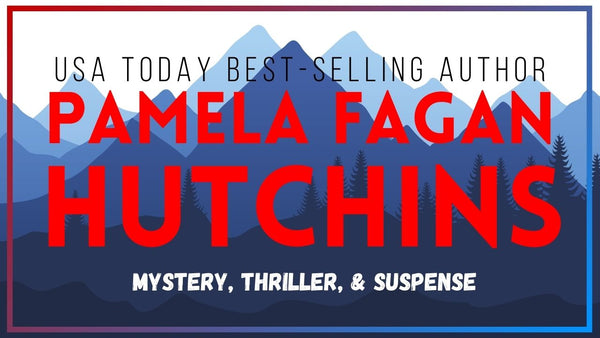Once upon a time, an attorney from Texas moved to the U.S. Virgin Islands, bought a rainforest house, and learned to believe in everyday magic. She was me, and I fell in love, with the house, with the islands, and with the people I met there. If fiction is life without the boring parts, then it is no surprise that when I started writing novels, they set themselves in the never-boring USVI.
But it was more than just the house, islands, and people themselves that set the story of Katie (and Annalise) in motion in Saving Grace. It was a particular night at that particular house in the USVI, a night that proved my island-born husband right when he told little-ole-doubting me, “Pamela, you've got a jumbie in your house.” A jumbie as in a voodoo spirit? “Yeah, right.”
Or at least that's what I thought until the night with the money. Our family was moving to Texas, and Eric was the last one of us left on-island. He had held an advertised liquidation sale that day. He ended the sale with $18,000 in his pocket, and a lot of the wrong kind of attention. Eric went to our house, Estate Annaly, to spend his last night there, all by himself except for the money. Cash is attractive anywhere, and especially in socioeconomically disadvantaged communities where there are few realistic consequences for law breaking, like St. Croix.
Now, Annaly was up in a remote part of the rainforest on St. Croix. There were no streetlights, the house had no phones, and the police were a half hour away, if you could get hold of them by cell phone, and if they chose to come at all when called. In addition, the house was only partially completed. In fact, we didn't have locks on most of the ground floor windows, and a 10-year old child could break in. And had. More than once.
We'd always felt safe at Annaly, though, in part because of our six dogs, but also because of that force I couldn't explain but that Eric called our jumbie. Plus, we had a flare gun, a machete, and an aluminum baseball bat. We were practically an army unto ourselves. Well, maybe not quite. But we were as ready as we could be for intruders on an island where I was early-on warned that, as a Continental, I should get an unmarked gun, and, if my home was invaded, shoot to kill and dump the body offshore. Horrifying, right? But in the eyes of local justice, a Continental was rarely justified in home- or self-defense. Seriously. I opted against the gun, but I never forgot the warning.
After his liquidation sale, Eric was awakened in the middle of the night by a car pulling up outside the house. No visitor is a good visitor at that hour, and Eric heard multiple male visitor's voices. Eric sprinted to the top floor of the house with the money and his “weapons” and barricaded himself into a bedroom. Then he called me in the States on a really bad cell phone connection. He felt sure the men would not only get in, but that he was at their mercy. He wanted to hear my voice, just in case. The call dropped almost as soon as we'd said hello to each other, and I hung up with no idea of what was happening.
A wind whipped up and the house shook. Eric heard the dogs barking and growling at the visitors, but the men advanced anyway. They banged on the doors and shouted. They pounded on the small panes of the windows. They howled with rage and money lust, but they couldn't get in the wailing house. Finally, they left. Despite all odds, Eric was safe. Shaken, but safe.
After that, it was hard for me to argue against the existence of Eric's jumbie. I looked back on our time at Annaly through new eyes, wide open and grateful eyes. And I started writing that story that became Saving Grace.
